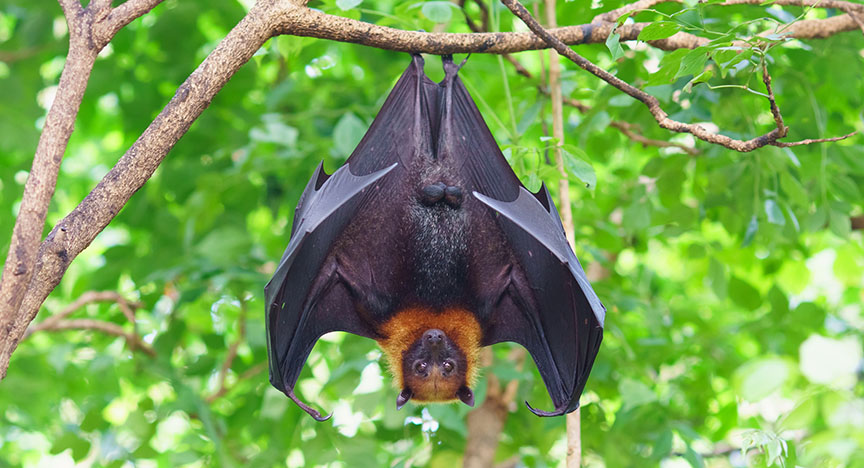
Metro South Health’s Public Health Unit is reminding residents not to touch or pick up bats and flying foxes, even if they appear sick or injured.
The animals carry bacteria and viruses that can be harmful to humans, especially the Australian Bat Lyssavirus (ABLV).
ABLV is a serious and fatal virus in humans that attacks the nervous system, similar to rabies.
Metro South Health Public Health physician Dr Bhakti Vasant said bat exposures often occurred when people touched or handled bats.
“Bats have been found in homes, backyards and public places like shopping centres. If you find a bat, it is important you do not touch it," Dr Vasant said.
"Ensure your children understand they must not touch bats. If children are bitten or scratched by a bat, they should be encouraged to tell their parents, teacher or another responsible adult immediately. Please make sure children know they will not get into trouble.”
It is currently bat breeding season, so we are going to see more bats around the region and bats struggle in the heat.
"Over the past month, there has been an increase in the number of bat exposures reported to Queensland Health across the state.
"The only people who should handle bats and flying foxes are trained handlers who are vaccinated and have appropriate protective equipment," Dr Vasant said.
“While bats are important for our ecosystems, it is important that people do not touch or pick up bats.”
If you find a bat stuck on a fence, in bird netting or on the ground, do not touch it. Contact the RSPCA on 1300 ANIMAL (1300 264 625) or Bat Conservation and Rescue Queensland on 0488 228 134.
In the event someone is bitten or scratched by a bat, or exposed to bat saliva through the eyes, nose, or mouth, follow the steps below:
- Do not scrub the wound. Instead, wash the wound gently and thoroughly for fifteen minutes with soap and water.
- If available, apply an antiseptic with anti-virus action such as povidone-iodine, iodine tincture, aqueous iodine solution or alcohol (ethanol).
- If bat saliva has got in the eyes, nose or mouth, flush the area thoroughly with water.
- Contact a doctor, 13HEALTH, your local Public Health Unit or the nearest hospital immediately to start post-exposure treatment.
- Contact the RSPCA hotline on 1300 ANIMAL (1300 264 625) or a wildlife carer to collect the bat for testing, if it is available.
For those working with children, here is a great resource to help educate children not to touch bats. Kids and bats poster (health.qld.gov.au) [PDF 6600 KB].